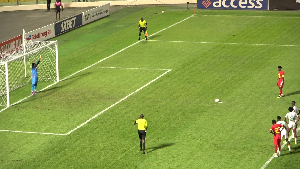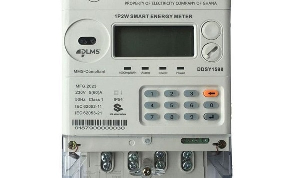The Ministry of Sanitation and Water Resources will in July, this year, redeploy sanitation guards, popularly known as “Saman-saman” in the metropolitan, municipal and district assemblies (MMDAs) to strengthen the enforcement of sanitation by-laws.
The move is also to help maintain cleanliness in the cities and towns, Ms Cecilia Abena Dapaah, the Minister of Sanitation and Water Resources, announced at the Meet-the-Press series in Accra on Tuesday.
She said the fight against unsanitary conditions in the country required the right attitudes and behaviour of citizens, which were very important factors in ensuring that “our cities and major towns are kept clean at all times”.
She, therefore, charged all citizens who engaged in open defecation to put an immediate stop to it and ensure they invested in building household toilets to keep the country clean.
“The call for proper sanitation is the duty of all of us - we need proper toilet facilities in our homes and offices. Washrooms should be the number one nearest place in our homes and must be clean for relaxation, and for deep thinking as well”.
We must all be health conscious, and change our attitudes towards the environment, Ms Dapaah said.
She announced that the Ministry was reviewing the 2010 Environmental Sanitation Policy, which provided guidance and vision for the MMDAs to implement sanitation in a more structured and holistic manner.
After the review, the Policy would help address the numerous challenges by introducing modernisation in the environmental sanitation sphere.
“Additionally, in our efforts to ensure strict adherence to the various national and local environmental sanitation laws and regulations in Ghana, the Ministry has initiated the process of putting together a comprehensive and consolidated National Sanitation Law,” she said.
“It will serve as the primary reference document for the preparation of local bye-laws as well as enhancing successful prosecution of sanitation offenders”.
The Minister urged businesses to invest in waste treatment, saying, it was now lucrative to do so, adding that partnering the Government to manage the sector would be a significant contribution.
A World Bank Study on Water and Sanitation had revealed that poor sanitation cost Ghana 290 million dollars annually.
The amount is equivalent to 12 dollars per person per year in Ghana, translating to 1.6 per cent of the national Gross Domestic Product.
“It makes a lot of economic sense to invest in sanitation, every dollar invested in sanitation yields five-dollar dividends,” Ms Dapaah noted.
General News of Wednesday, 24 April 2019
Source: ghananewsagency.org

















